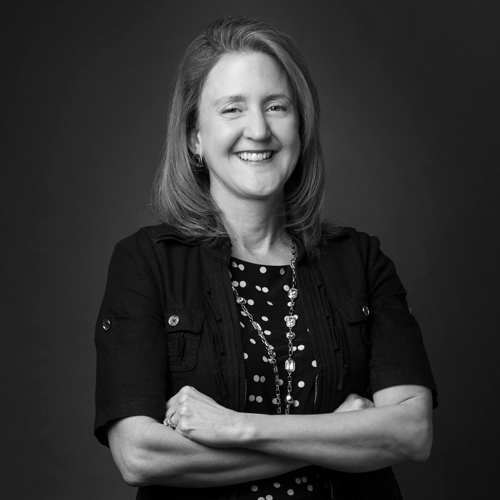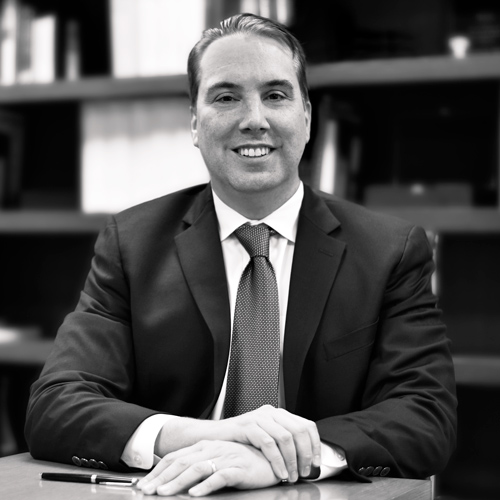
Less than 10 percent of the American population in the 1950s was older than sixty-five, according to The Atlantic. That number is expected to grow to more than 20 percent by 2050. It poses a unique challenge in the healthcare world: a wave of medical professionals rapidly nearing retirement age paired with an even larger wave of aging Americans in need of further care.
“Between the advancing age of the baby boomers and the fact that the majority of nurses are over forty years of age and retiring themselves, we as a nursing home and rehabilitation company are facing a real challenge,” explains Byron Kirton, Avalon Health Care Group’s senior vice president of human resources. “The need for clinical staff is massive now, and it’s going to become an even greater challenge in the next ten years.”
Kirton first joined Avalon in 2007 as director of recruitment and retention and has helped shepherd the organization through many major changes in the healthcare talent sphere. Although many others in the field have had a lifelong passion for healthcare, Kirton came to the role fresh from having founded and ran his own art marketing business.
As he decided to trim down his company, Kirton worked closely with the then-vice president of HR, who needed help developing a recruitment model for Avalon. “I handed him a three-inch binder with a model I’d developed,” Kirton recalls. Not only did the model prove essential, but the HR executive also asked Kirton to join in its implementation.
Fittingly, Kirton’s unique approach blends traditional HR strengths with sales and marketing expertise to attract top talent in innovative ways. That diverse approach comes in handy, especially when considering that Avalon’s fifty-plus communities are located in seven different states across the western United States, each with its own unique challenges. In many of those states, the organization has launched Certified Nurse Aid Training Programs to develop and certify new nursing assistants and medical technicians. Additionally, these programs are provided in both Spanish and English, to further find untapped pools of talent.
In some cases, Avalon also offers tuition reimbursement, grants from local governments that want to strengthen their healthcare infrastructures, and partnerships with colleges and universities. “We’re training high school graduates to provide hands-on care to the greatest generation on the planet,” Kirton says. “We want to ensure that we’re helping produce the right caliber of clinical expertise, and that we’re participating in a way that we can keep the Avalon name front and center. We want nurses to know us, trust us, and come work for us.”
Part of that comes from integrating new technology, such as transitioning from paper applications to more digital tracking tools. Avalon has also taken steps into using social media for marketing the organization to candidates and networking with associations.
But beyond having the right tools, Kirton emphasizes the importance of truly understanding what millennial candidates want from an opportunity. “The millennial generation is misunderstood and oftentimes unfairly maligned,” he explains. “If you motivate the millennials, they will run through walls for you.”
To do so, Kirton says, salary isn’t the only, or even the primary, answer. Instead, Kirton focuses on the age group’s tendency to look for opportunities to stand out for their achievements and be recognized. Millennials are also interested in finding the right culture fit and how they might personally contribute to the greater good, Kirton says.
As such, Avalon ensures that the individuals it recruits are prepared and properly matched for each specific facility. Each community as a whole interacts with its environment in different ways. An Avalon facility in a rural area, for instance, might aim to create a “small-town feel” by putting on an annual parade, sponsoring community events, or similar activities. Meanwhile, an Avalon facility in a college town may spend more time focused on helping young healthcare professionals develop their careers.
Achieving those diverse results without losing focus of the organization’s mission and core values relies on a strong leadership core and communications skills. “We stress to our leaders to learn the name of every employee and to know their strengths and stories,” Kirton says. “We want to create a bond, a sense of friendship, and a sense that we’re the winning team in a tight market.”
Another millennial misconception is their supposed disinterest in others. Avalon has had success recruiting candidates who value the wisdom of their elders. “We’re looking for people who want to take care of somebody’s grandmother or somebody’s grandfather,” Kirton says. “If someone says, ‘I want to develop long-term relationships with those who I serve,’ then that’s going to be an excellent fit.”
And that strategic, intelligent fit can lead to untold success, both for Avalon as an organization and for the employees as individuals. Multiple individuals who started at the organization as certified nursing assistants have risen to regional vice president roles. Kirton even handpicked a former assistant to lead the benefits and wellness programs for roughly seven thousand employees.
In addition to his role at Avalon, Kirton is a board member of the Alliance House—a nonprofit that provides a supportive environment where adults with serious, persistent mental illness can receive assistance. In both roles, Kirton is focused on helping those that need it most, whether through fundraising, creating awareness, or driving other talented individuals to the cause.
“Similar to Avalon, the mentally ill are a very underserved population, and in many respects, are still a misunderstood population. But I work for the underdog,” Kirton says. “Both the Alliance House and Avalon are helping people progress, and this has improved the performance of these organizations as well. I’m really proud of and honored to do what I do.”

